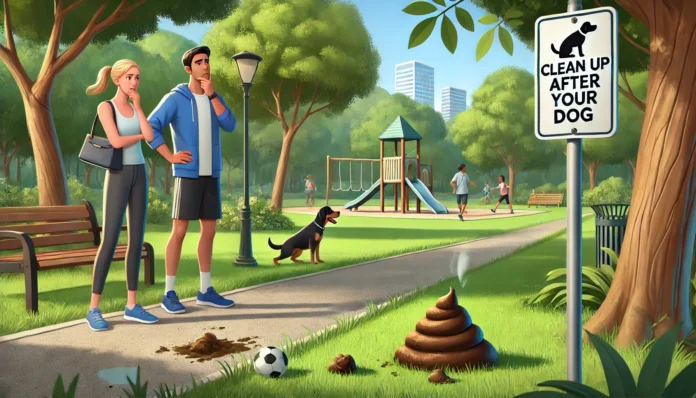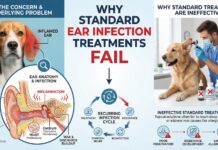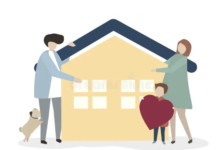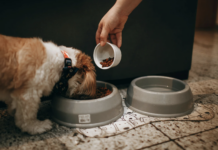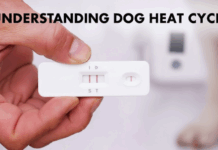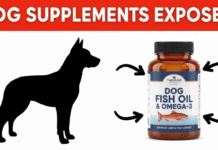Last Updated on February 16, 2025 by Dogs Vets
Introduction
In recent years, the number of dog owners has surged globally, with millions of households welcoming furry friends into their families. While dogs bring joy, companionship, and numerous health benefits, they also come with responsibilities. One of the most crucial yet often overlooked responsibilities is picking up after your dog. Neglecting to pick up dog poop is not just a matter of etiquette; it poses significant health risks, environmental hazards, and legal consequences. This article delves into the hidden dangers of not picking up dog poop and offers practical solutions to promote responsible pet ownership.
The Health Risks of Dog Poop
- Parasitic Infections
Dog feces can harbor a variety of parasites that pose serious health risks to humans, particularly children and immunocompromised individuals. The most common parasites found in dog poop include roundworms, hookworms, and tapeworms.
- Roundworms: These parasites can cause toxocariasis in humans, leading to symptoms such as fever, cough, and abdominal pain. In severe cases, toxocariasis can cause vision loss and even organ damage.
- Hookworms: These parasites can penetrate human skin, causing cutaneous larva migrans, a condition characterized by itchy, red tracks on the skin. Ingestion of hookworm larvae can lead to abdominal pain and anemia.
- Tapeworms: While less common, tapeworms can infect humans through the ingestion of contaminated soil or water. Symptoms include nausea, diarrhea, and weight loss.
Bacterial Infections
Dog poop can also contain harmful bacteria such as E. coli, Salmonella, and Campylobacter. These bacteria can cause severe gastrointestinal illness in humans, with symptoms ranging from diarrhea and vomiting to fever and abdominal cramps.
- E. coli: Certain strains of E. coli can cause severe food poisoning, leading to bloody diarrhea and kidney failure in severe cases.
- Salmonella: This bacterium is a common cause of foodborne illness, with symptoms including diarrhea, fever, and abdominal cramps.
- Campylobacter: This bacterium is a leading cause of bacterial diarrhea worldwide, with symptoms such as diarrhea, fever, and abdominal pain.
Viral Infections
In rare cases, dog poop can also transmit viral infections such as parvovirus and coronavirus. While these viruses primarily affect dogs, they can pose a risk to humans, particularly those with weakened immune systems.
Environmental Hazards
Water Pollution
One of the most significant environmental impacts of not picking up dog poop is water pollution. When dog feces are left on the ground, rainwater can wash them into storm drains, streams, rivers, and lakes. This runoff can introduce harmful bacteria, parasites, and nutrients into waterways, leading to waterborne diseases and algal blooms.
- Algal Blooms: The excess nutrients from dog poop can cause algal blooms, which deplete oxygen levels in the water and create “dead zones” where aquatic life cannot survive.
- Beach Closures: Water pollution from dog poop can lead to beach closures, as high levels of bacteria make the water unsafe for swimming and recreational activities.
Soil Contamination
Dog poop left on the ground can also contaminate the soil, posing risks to plants, animals, and humans. The bacteria and parasites in dog feces can persist in the soil for extended periods, increasing the likelihood of human exposure.
Aesthetic and Economic Impacts
In addition to health and environmental risks, not picking up dog poop can have aesthetic and economic impacts. Unsightly dog feces can deter visitors from parks and public spaces, leading to decreased tourism and economic losses for local businesses.
Legal Consequences
Many cities and municipalities have laws requiring dog owners to pick up after their pets. Failure to comply with these laws can result in fines and penalties. In some areas, the fines for not picking up dog poop can be substantial, with repeat offenders facing even steeper penalties.
- Fines: The fines for not picking up dog poop can range from $50 to $500 or more, depending on the jurisdiction.
- Community Service: In some cases, offenders may be required to perform community service, such as cleaning up public spaces.
The Role of Responsible Pet Ownership
- Education and Awareness
Educating dog owners about the importance of picking up after their pets is crucial in promoting responsible pet ownership. Local governments, animal shelters, and pet stores can play a vital role in raising awareness about the health and environmental risks of not picking up dog poop.
- Providing Resources
Providing dog owners with the necessary resources, such as poop bags and designated disposal bins, can encourage them to pick up after their pets. Many cities and municipalities have implemented programs to distribute free poop bags and install disposal bins in public areas.
- Enforcement and Accountability
Enforcing laws and holding dog owners accountable for not picking up after their pets is essential in ensuring compliance. Local governments can implement measures such as increased patrols, surveillance cameras, and citizen reporting systems to deter offenders.
Practical Solutions for Dog Owners
- Always Carry Poop Bags
Make it a habit to carry poop bags with you whenever you take your dog for a walk. Keep a supply of bags in your car, purse, or backpack, and consider using a bag dispenser that attaches to your dog’s leash.
- Dispose of Poop Properly
Dispose of dog poop in designated trash bins or compost bins. Avoid flushing dog poop down the toilet, as it can clog pipes and cause sewage backups.
- Consider Biodegradable Bags
Use biodegradable or compostable poop bags to minimize environmental impact. These bags break down more quickly than traditional plastic bags, reducing the amount of waste in landfills.
- Be a Responsible Neighbor
Be mindful of your neighbors and community by picking up after your dog in public spaces and private yards. Encourage other dog owners to do the same and report offenders to local authorities if necessary.
- Educate Others
Share information about the importance of picking up dog poop with friends, family, and fellow dog owners. Encourage others to adopt responsible pet ownership practices and lead by example.
Frequently Asked Questions
- Why is it important to pick up dog poop?
Picking up dog poop is crucial for several reasons. It helps prevent the spread of parasites, bacteria, and viruses that can cause illness in humans and other animals. It also reduces environmental pollution, protects water quality, and maintains the aesthetic appeal of public spaces.
- What are the health risks of not picking up dog poop?
Not picking up dog poop can lead to the spread of parasitic infections such as toxocariasis, cutaneous larva migrans, and tapeworm infections. It can also transmit harmful bacteria such as E. coli, Salmonella, and Campylobacter, causing severe gastrointestinal illness.
- How can I dispose of dog poop safely?
Dispose of dog poop in designated trash bins or compost bins. Use biodegradable or compostable poop bags to minimize environmental impact. Avoid flushing dog poop down the toilet, as it can cause plumbing issues.
- What are the legal consequences of not picking up dog poop?
Many cities and municipalities have laws requiring dog owners to pick up after their pets. Failure to comply with these laws can result in fines, penalties, and even community service. Repeat offenders may face steeper fines and legal action.
- How can I encourage others to pick up dog poop?
Lead by example and always pick up after your dog. Share information about the importance of responsible pet ownership with friends, family, and neighbors. Encourage others to adopt good habits and report offenders to local authorities if necessary.
Conclusion
The dangers of not picking up dog poop are far-reaching, affecting human health, the environment, and the community. By understanding the risks and taking proactive steps to address them, dog owners can contribute to a cleaner, safer, and more sustainable world. Responsible pet ownership is not just a personal obligation but a collective responsibility that benefits everyone.
References
- Centers for Disease Control and Prevention. (2021). Toxocariasis. Retrieved from CDC website
- Centers for Disease Control and Prevention. (2021). Hookworm Infection. Retrieved from CDC website
- World Health Organization. (2021). Tapeworm Infection. Retrieved from WHO website
- Centers for Disease Control and Prevention. (2021). E. coli. Retrieved from CDC website
- Centers for Disease Control and Prevention. (2021). Salmonella. Retrieved from CDC website
- Centers for Disease Control and Prevention. (2021). Campylobacter. Retrieved from CDC website
- Environmental Protection Agency. (2021). Algal Blooms. Retrieved from EPA website
- National Oceanic and Atmospheric Administration. (2021). Beach Water Quality. Retrieved from NOAA website
- American Veterinary Medical Association. (2021). Leash Laws and Poop Scooping. Retrieved from AVMA website
- National Association of Local Animal Control Officials. (2021). Animal Control Laws. Retrieved from NALACO website
Links
